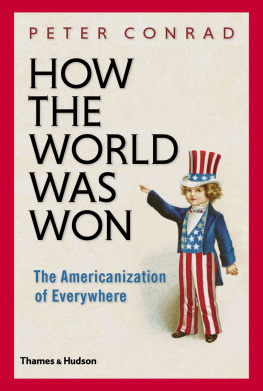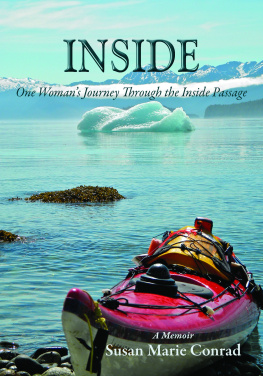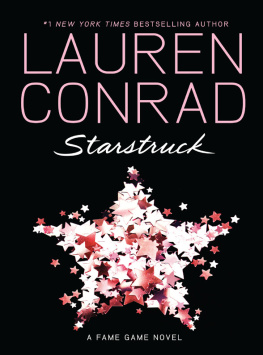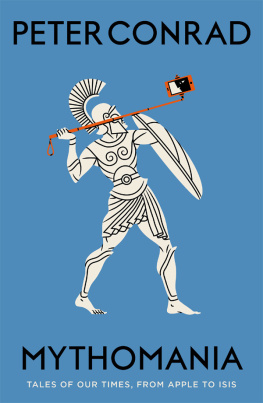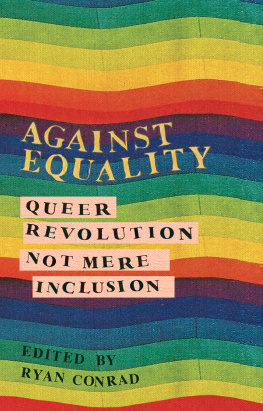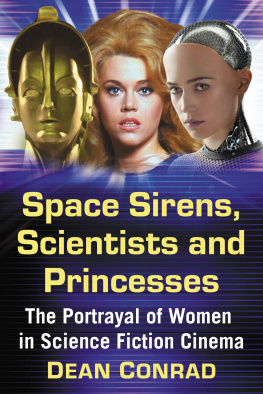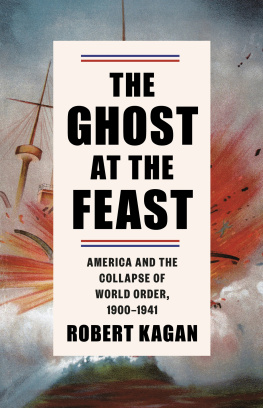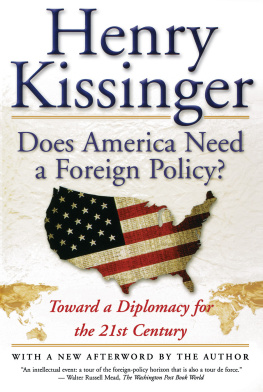
This is the seventh book of mine published by Jamie Camplin. He has enlivened and encouraged me for almost three decades, with more faith in me than I have in myself. Much as I value his friendly support, I also respect his clear-eyed judgment, and have come to realize that when we disagree, he is always right. As in every previous case, it has been a pleasure and a privilege to work with Jamies colleagues at Thames & Hudson, who set themselves to make books that are things of beauty, meant to be handled rather than scanned on a cold grey screen. I have also benefited from the expertise of two freelancers my minutely conscientious copy-editor Richard Mason, and Marian Aird who prepared the index. It was a joy to discuss the project with Gloria Loomis, and as well with Walter Bernstein, who wrote the scripts for two of the Hollywood films I have referred to here. Caroline Dawnay at United Agents, braving a grim market, has represented me with tenacity and bright-eyed enthusiasm.
Peter Conrad is the author of more than twenty acclaimed books on many subjects, among them Modern Times, Modern Places; A Song of Love and Death: The Meaning of Opera; studies of Hitchcock and Orson Welles; Imagining America; and The Art of the City: Views and Versions of New York. Born in Australia, he taught English Literature at Christ Church, Oxford, for many years and, since first acquiring an apartment in Greenwich Village in 1980, has divided his time between London and the United States.
Other titles by Peter Conrad published by
Thames & Hudson include:
Creation: Artists, Gods & Origins
Islands: A trip through time and space
Modern Times, Modern Places:
Life and Art in the 20th Century
Verdi and/or Wagner:
Two Men, Two Worlds, Two Centuries
See our websites
www.thamesandhudson.com
www.thamesandhudsonusa.com
Contents
Like many others who arrived in the world after 1945, I often need to remind myself that I am not American.
I happened to be born in Australia, which in my childhood was a remote outpost of two successive empires. Officially we were sustained by a colonial connection to Britain, and at school we were taught English history and told as little as possible about our origins as a penal colony. But that craven loyalty had begun to fray. At the end of 1941, seven weeks before the Japanese captured Singapore and pushed south to bomb the city of Darwin, Prime Minister John Curtin briskly exchanged protectors and announced without any inhibitions, as he said, and with no pangs about embattled Britain that Australia looks to America.
I belonged to the first generation to have its gaze forcibly redirected. I grew up juggling the borrowed cultures of two foreign powers: I educated myself by reading English books borrowed from the local library, but sidled off to watch American Westerns and screwball comedies at the cinema every Saturday afternoon. The books told me about an old world that was eccentric and insular, crooked and cranky, groaning under the weight of its antiques. The films showed me an alternative a landscape as anamorphic as a Cinemascope screen, its expanses patrolled, unlike Australias scorching deserts, by chivalrous cowboys; a society of scarcely credible gloss and glamour, with buildings that shot into the sky like fireworks and people who conversed in volleys of crackling witticisms. My dreams were colonized by an imaginary America.
I came to understand that Australia lived on sufferance, remotely dependent on the United States, which as Hubert Humphrey said in 1948 offered itself to the whole two billion members of the human family as now, more than ever, the last best hope on earth. The offer to take patriarchal responsibility for the human brood was a reassurance, but the proviso about being the last hope sounded alarming. Shortly before the presidential election in 1960, John Kennedy warned in a speech in New York that to be American in the next decade will be a hazardous experience. The rest of us had to share in those hazards, whether or not we found them as exhilarating as Kennedy did. In 1962, aged fourteen, I remember lessons being interrupted by an announcement over my schools public-address system to report that Russia was withdrawing its missiles from Cuba. This was an unglobal world where news was myopically local, so I had little idea what that meant; the relief of the teachers, I later realized, made it clear that we had been granted a stay of execution. I wish I had known the Cold War slogan of the historian Arnold Toynbee, who adapted the catch-call of American liberty to demand No Annihilation Without Representation. If we were all the subjects of American power, why shouldnt we react as the colonists in the 1760s did when taxed by Britain?
In November 1963, Kennedy was assassinated. It was early afternoon in Dallas but already night in Australia; when I awoke my mother broke the news and added Therell be a war now a bright thought for a Saturday morning in the antipodean spring, but a reasonable assumption. Fights were picked above the equator, where history happened. Australians would eventually be obliged to join in or else we would patiently, passively wait until the nuclear fallout drifted down to make an end of us. My adolescence was overshadowed by Nevil Shutes novel On the Beach, in which the last human beings messily succumb to radiation sickness in Australia after a brief, unnecessary war in the upper hemisphere. Among them is an American naval officer who, since those who outrank him are all dead, becomes the Supreme Commander of his countrys fleet. Beached in Melbourne, he deals tactfully with the local sense of unworthiness by accepting eucalyptus as the equal of New Englands deciduous trees. However, he is unreasonably suspicious of Australian whisky, and he ridicules Australian provincialism when he visits an art gallery and sees a version of bombed New York painted by an untravelled surrealist who has reassigned the Brooklyn Bridge to New Jersey and planted the Empire State Building in Central Park. At the end, he sails his submarine back across the Pacific, expecting that he and his crew will expire on the way home. I guess the United States is me, right now, he says. Given that symbolic burden, to die in Australia would hardly be proper.
In exchange for protection, Australia compliantly contributed troops to Americas war in Vietnam; along with a few Koreans, we constituted what were known as Free World Forces. The truth of the matter is illustrated in a photograph by David Moore, taken at the airport in Canberra during President Lyndon Johnsons visit in 1966. Johnson stands at the microphone, paying gravel-voiced compliments to his ally. Two paces behind him is Harold Holt, then the prime minister, bent in an attitude of broken-backed obsequiousness. Shamingly, I can understand Holts bowed head. In 1968, when my number came up in the conscription lottery, I was indignant at having my immediate future taken away by Americas executive whims yet it was also thrilling to be hauled out of obscurity at the bottom of the world and made to contribute to this grand ideological showdown between the United States and its doctrinal enemy.
Some stories by Frank Moorhouse, published in 1972 as The Americans, Baby, catch the mood and mentality of the time, with sex as shorthand for Australias willing submission to imperious, glamorous America. In one story, Carl stops writing anti-war speeches to let a suave American called Paul Jonson allegedly a journalist, probably a CIA agent buy him beers and seduce him. Twenty-year-old Cindy moves in with thirty-year-old Hugo, a hippie from Nebraska who has come to Australia as a nuclear refugee; he orders her to read
Next page
